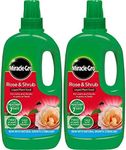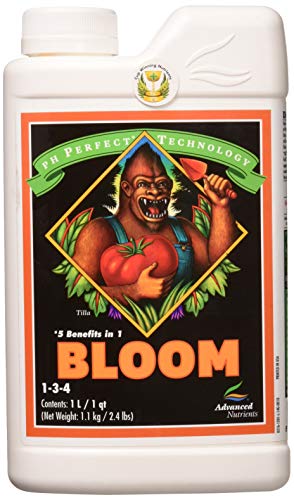Buying Guide for the Best Rose Fertilizers
Choosing the right rose fertilizer is crucial for ensuring your roses grow healthy and produce beautiful blooms. Fertilizers provide essential nutrients that roses need to thrive, and selecting the right one can make a significant difference in the health and appearance of your plants. When choosing a fertilizer, consider the specific needs of your roses, the growing conditions, and your gardening goals. Understanding the key specifications of rose fertilizers will help you make an informed decision.NPK RatioThe NPK ratio represents the percentage of nitrogen (N), phosphorus (P), and potassium (K) in the fertilizer. These are the primary nutrients that plants need. Nitrogen promotes leaf growth, phosphorus encourages root and flower development, and potassium helps with overall plant health. For roses, a balanced NPK ratio like 10-10-10 or a slightly higher phosphorus content like 5-10-5 is often recommended. If your roses are not blooming well, a fertilizer with higher phosphorus might be beneficial. Consider your specific rose needs and choose an NPK ratio that supports their growth stage and health.
Type of FertilizerFertilizers come in various forms, including granular, liquid, and slow-release. Granular fertilizers are easy to apply and provide nutrients over time, making them a good choice for regular feeding. Liquid fertilizers are fast-acting and can be used for quick nutrient boosts, especially during the growing season. Slow-release fertilizers gradually release nutrients over several months, reducing the need for frequent applications. Choose the type that best fits your gardening routine and the specific needs of your roses. If you prefer less frequent applications, a slow-release option might be ideal.
Organic vs. SyntheticOrganic fertilizers are made from natural materials and are often preferred by gardeners who want to maintain an eco-friendly garden. They improve soil health and provide a steady supply of nutrients. Synthetic fertilizers, on the other hand, are chemically formulated and can provide a quick nutrient boost. They are often more concentrated and can be more cost-effective. If you are looking for a sustainable option and want to improve soil quality, organic fertilizers are a great choice. If you need immediate results, synthetic fertilizers might be more suitable.
MicronutrientsIn addition to the primary nutrients, roses also benefit from micronutrients like iron, magnesium, and calcium. These are essential for preventing deficiencies and promoting overall plant health. Some fertilizers include these micronutrients, which can be particularly beneficial if your soil lacks them. If your roses show signs of nutrient deficiencies, such as yellowing leaves or poor growth, a fertilizer with added micronutrients can help address these issues. Consider a fertilizer that includes these additional nutrients if your soil tests indicate a deficiency.
Application FrequencyThe frequency with which you need to apply fertilizer depends on the type of fertilizer and the specific needs of your roses. Some fertilizers require monthly applications, while others, like slow-release formulas, may only need to be applied once or twice a season. Understanding the application frequency is important for maintaining a consistent nutrient supply without over-fertilizing, which can harm your plants. Consider your gardening schedule and choose a fertilizer with an application frequency that you can maintain consistently.


















